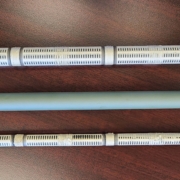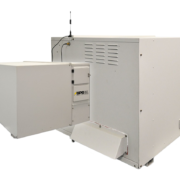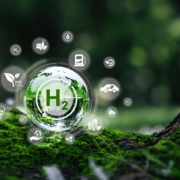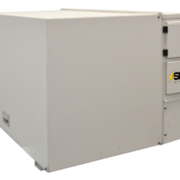SOFCs Offering Sustainable Energy for Remote Communities
In recent years, as technology has advanced, so have opportunities to bring more renewable and efficient energy sources to remote communities. Many are aware of the potential for wind and solar energy, however, Solid Oxide Fuel Cells (SOFCs) are a promising energy source that can work in even the harshest conditions in the most remote locations.
They provide a clean and efficient way to generate electricity, providing a lifeline for isolated areas that are often off the grid. Here you can explore the potential of SOFCs in creating a renewable energy source for remote communities and the numerous benefits they bring.
Understanding Why Solid Oxide Fuel Cells For Remote Locations
Solid oxide fuel cells are electrochemical devices that convert chemical energy directly into electricity, with water and heat as the only byproducts. Unlike conventional fuel cells, SOFCs operate at high temperatures, typically between 500 and 1000 degrees Celsius. This high-temperature operation allows for the use of a variety of fuels, including diesel, methane, biofuels, and hydrogen, making SOFCs versatile and adaptable to different energy landscapes.
With their flexibility and unique operating characteristics, they have become a wonderful solution for remote locations and rigid temperatures.
Advantages of SOFCs for Remote Communities
Remote communities have distinct challenges when it comes to energy production. Remote communities depend on reliable and consistent power like other communities but lack the infrastructure and availability of resources to create a reliable and sustainable energy source. Historically, remote communities would rely on diesel generators, but with advances in SOFC technology, these communities have better solutions at their disposal that do not lead to high operational costs and environmental degradation.
There are many advantages to using SOFCs that make it a reliable, efficient, and sustainable source of power.
Efficiency and Reliability
SOFCs boast high electrical efficiency, making them an ideal choice for off-grid communities. Their reliability stems from their solid-state design, which eliminates many of the mechanical components found in traditional power generation systems. This reduces maintenance requirements and enhances the overall dependability of the energy source.
Versatility in Fuel Sources
SOFCs are fuel-flexible meaning they can utilize a variety of fuel sources, including hydrogen, natural gas, and biofuels. This flexibility allows communities to adapt to locally available resources, promoting sustainability and reducing dependence on external energy supplies.
Reduced Environmental Impact
The electrochemical process in SOFCs produces electricity without combustion, resulting in lower emissions of greenhouse gases and pollutants. This environmentally friendly characteristic aligns with the global push towards cleaner energy solutions and helps mitigate the impact of climate change.
Decentralized Power Generation
SOFCs enable decentralized power generation, meaning energy can be produced at the point of use. This eliminates the need for extensive transmission infrastructure, making it particularly advantageous for remote communities where establishing a traditional power grid is often cost-prohibitive.
Supplemental Power Generation
In addition to being a main source of energy, SOFC can also make a significant contribution as a supplemental power source. With its flexibility and ability to store energy, a SOFC generator can provide emergency backup power or cost-efficient supplemental power like in the King County Wastewater Treatment Division where they lowered they lowered their power costs by 15% by adopting SOFC as supplemental power.
Heat Utilization
Another noteworthy feature of SOFCs is their ability to generate heat as a byproduct. This thermal energy can be harnessed for various purposes, such as space heating or water heating, enhancing the overall efficiency of the system.
Longer Operating Lifespan
Compared to some other types of fuel cells, SOFCs have the potential for longer operating lifespans. This is crucial for remote communities where maintenance and replacement of energy infrastructure can be challenging and costly.
Low Maintenance Requirements
SOFCs have a solid-state design, which eliminates many of the mechanical components found in traditional power generation systems. This results in lower maintenance requirements, reducing the need for frequent and costly repairs in remote locations.
Adaptability to Harsh Environments
SOFCs can operate in a wide range of environmental conditions, including extreme temperatures. This adaptability is advantageous for remote communities located in regions with harsh climates or challenging terrain.
A Scalable Solution for Future Energy
Solid Oxide Fuel Cells represent a compelling solution for powering remote communities sustainably. Their efficiency, versatility, and reduced environmental impact make them a beacon of hope for regions struggling with grid access. As technology advances and implementation barriers are overcome, SOFCs could play a pivotal role in fostering energy independence and resilience in the most isolated corners of our planet.













